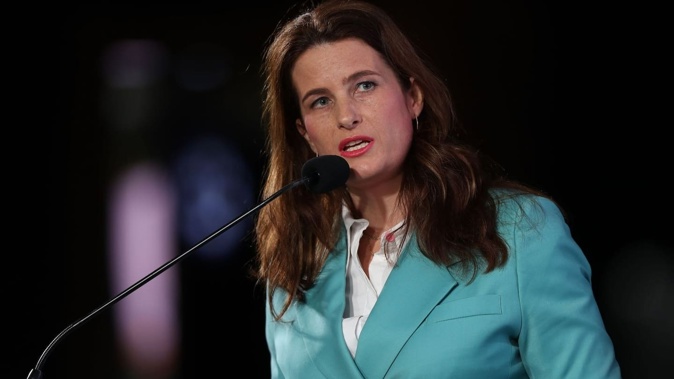
Finance Minister Nicola Willis has firmed up her Government’s commitment to delivering income tax cuts, despite the underperforming economy.
“We will stick to our commitments to lower personal income taxes,” Willis said at an Auckland Business Chamber event this afternoon.
However, Willis didn’t clarify whether she would provide the same amount of tax relief National campaigned on, ahead of the election.
National and Act agreed, in their coalition agreement, to ensuring “the concepts of Act’s income tax policy are considered as a pathway to delivering National’s promised tax relief, subject to no earner being worse off than they would be under National’s plan”.
Under National’s tax plan, income tax brackets would be adjusted to the extent a minimum wage worker would receive an extra $112 a year, someone on the median wage would receive $800, and someone who earned $100,000 a year would receive an extra $1,043.
National campaigned on ensuring these changes would take effect from July 1.
Act ultimately wants to see the income tax system flatter, so there are three, rather than the current five, tax brackets.
It wants to introduce a new tax credit for low to middle-income earners, who would otherwise be left out of pocket if Act got its way and lifted the bottom income tax rate from 10.5 to 17.5 per cent.
Willis didn’t elaborate on how she might incorporate Act’s approach into her revamp of the income tax system.
She recognised people might question her commitment to tax relief, with the economy more sluggish than expected.
She suggested the Treasury may have to downgrade its gross domestic product (GDP) forecasts when it releases its Budget Economic and Fiscal Update alongside the Budget on May 30.
“Treasury is now warning me that growth over the next few years is likely to be significantly slower than it had previously thought,” she said, recognising productivity in New Zealand has slowed.
According to the latest Crown accounts for the seven months to January, core Crown tax revenue came in 1.1 per cent below forecast by the Treasury in its December half-year update.
Overall, the tax take for the period was still 7 per cent higher than the same period the previous year - the labour market was strong and high inflation meant people paid more GST buying fewer, but more expensive, goods and services.
However, the stress was evident with the corporate tax take falling by 11 per cent.
In her speech, Willis said the Government would invest in infrastructure, drive more value from government spending and cut red tape.
She asked those in the business community to do their bits to help drive growth.
“The three parties of our coalition are resolutely, pro-growth, pro-development and anti-red-tape,” Willis said.
“Now, more than ever, we must double-down on the drive for real economic growth.”
Willis didn’t mention National’s pre-election goal of getting the Government’s books back in surplus by 2026-27.
In December, when Treasury’s view of the economy was likely rosier than it is now, it only forecast a wafer thin return to surplus by this date.
Willis said it would be an overreaction for the Government to drastically cut back on investment, give up on “overdue tax reduction”, and “hunker down to weather the storm”.
Willis will have more to say about how much she will increase the Government’s operational and capital expenditure by, in the Budget when she releases her Budget Policy Statement on March 27.
She will also update the Government’s “fiscal goals”.
Jenée Tibshraeny is the Herald’s Wellington Business Editor, based in the Parliamentary press gallery. She specialises in government and Reserve Bank policymaking, economics and banking.
Take your Radio, Podcasts and Music with you









